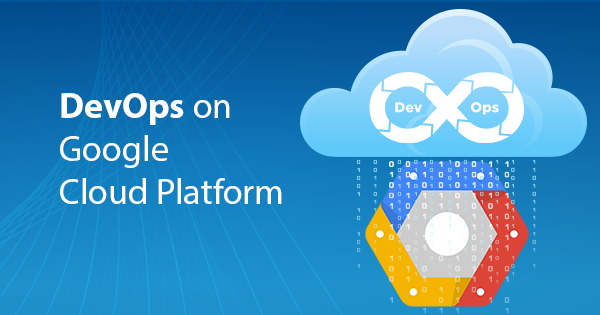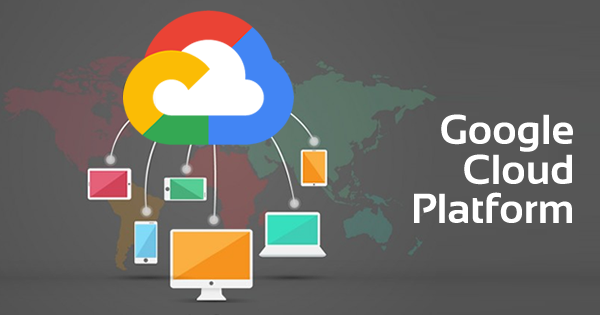Many technological interventions have been an integral part of the last decade. The popularity of GCP DevOps is on the rise, and this phenomenon deserves attention. DevOps, as a principle, is responsible for shaping up the modern software and application development landscape. The best outcome of DevOps is evident in the breaking of the barrier between development and operations. Many consider DevOps as a principle, while many consider it a movement.
And then many consider it as a new methodology for software development. So, what exactly is DevOps? We need the answer to this, especially as we are about to start a discussion about DevOps on Google Cloud Platform. The basic definition of DevOps implies that it is a set of practices and methods for the automation of processes between software development and IT operations teams. The primary objective of DevOps is to create, test, and release software with better speed and reliability.
Preparing to become a certified Google Cloud professional? Check our Google Cloud Certifications Training Courses now!
But, is that all there is to DevOps? No, as we mentioned just a few moments ago, DevOps is a movement, a philosophy, or you can say a new “culture” with its unique identity! How will Google Cloud Platform DevOps service fall in line with the larger movement? The following discussion would aim at exploring the alignment of Google Cloud Platform (GCP) with the functionalities of DevOps.
What is DevOps? – An Overview
Let us start our discussion by continuing what we started in the introductory paragraph. Before diving into details about GCP DevOps, let us find out more about the DevOps movement. DevOps is a movement because it aims at changing the conventional notion of placing the development and operations team as distinct siloes. DevOps aims at the introduction of collaboration between the two teams with the assurance of many benefits.
First of all, it helps in increasing trust that gradually leads to better management of unplanned work. Also, DevOps on Google Cloud or any other platform would contribute towards a faster resolution of critical issues. The combined effect of all these positive aspects in DevOps contributes to faster software and application releases. The notion of Google Cloud DevOps comes from the opposition against conventional software development models.
The models emphasized on maintaining organizational and functional segregation between the individuals writing the code and the individuals deploying and supporting the code. The DevOps movement brought a change in this type of mindset. Now, DevOps emphasizes on tighter integration and better collaboration between the development and operations teams.
The advantages of GCP DevOps are evident from the general functionalities of the DevOps movement. Development and operations teams could make the most of the combination of continuous delivery, automation, and agile practices. As a result, both teams can identify new opportunities for improving efficiency, innovation, and value for customers and businesses.
Also Check: An Introduction to Machine Learning on Google Cloud Platform
DevOps on the Google Cloud Platform (GCP)
Continuing from the outline mentioned above regarding DevOps, we could start our discussion on Google Cloud DevOps. What have we learned till now? DevOps is an operating model or methodology that provides an Agile connection between development and operations teams. We know that the primary objective of DevOps is evident in the automation of processes between software development and IT operations.
The implications of these basic principles of DevOps show that DevOps GCP could also help in faster and reliable building, testing, and releasing of software. Google Cloud Platform is a collection of computing resources of Google alongside other resources provided through services. The additional resources in concern here may refer to Big Data, Networking, Google’s Storage and Databases, Machine learning, and others.
In addition to the computing resources on Google, GCP DevOps also has the support of a wide range of tools. The tools are an excellent way of realizing the efficient implementation of DevOps processes. As a result, Google Cloud Platform DevOps service helps in faster builds and product delivery with credible levels of reliability.
Working of DevOps on the GCP
The working of DevOps GCP is also an important part of this discussion to understand how DevOps work on Google Cloud Platform! The functionality of DevOps with the Google Cloud Platform primarily depends on the services on GCP for building, storing, and deploying apps. The various DevOps features are available in different GCP solutions.
Some of the solutions include Infrastructure as Code, Configuration management, continuous integration (CI), continuous delivery (CD), secrets management, and serverless computing. The impact of the various solutions that enable the GCP DevOps service can provide further clarity regarding the DevOps functionality of GCP.
Infrastructure as Code
First of all, the Infrastructure as Code service helps in realizing the goals of GCP DevOps through automation of repeatable tasks. As a result, the development and operations team could address their core functionalities without having to deal with repetitive tasks. The tasks include provisioning, configuration, and deployments either for a single machine or multiple ones.
Leveraging the power of DevOps on the Google Cloud Platform also helps in easier participation in team code reviews, development of CI/CD pipelines and maintain a complete record of changes. Furthermore, Infrastructure as a code on DevOps Google Cloud can help in easy creation, updates, and deletion of resources throughout GCP. The interesting factor is that you don’t have to face any considerable changes in the existing workflows.
Certification helps the professionals to validate their skills and get global recognition for them. Check out the list of Top DevOps Certifications and be determined to get one!
Configuration management
Another prominent contribution of GCP DevOps is the functionality of configuration management. With the help of this functionality, it is possible to automate deployment, architecture, and compliance for all servers. The codification of system configurations and code reviews, along with the development of CI/CD pipelines, are some of the important benefits. Therefore, configuration management tools on GCP can help in accomplishing the objective of the collaboration between teams. Also, it can help in the resolution of issues before entering into production.
Continuous delivery
DevOps Google Cloud largely depends on the continuous delivery functionality of GCP. With the help of continuous delivery, it is easier to ensure end-to-end automation from source to production. The benefits of Google Cloud Platform that promote the CD functionality for DevOps include faster shipping, risk reduction, quality improvement, and easy scalability. Furthermore, you can also access the advantage of running on hybrid or multi-cloud environments with GCP. Also, continuous delivery associates with safe development and deployment on GCP.
Continuous integration
Continuous integration functionalities in GCP DevOps also have a prominent role in realizing DevOps working on GCP. The different reasons for which GCP can provide the DevOps advantage of CI refer to scaling without restrictions of maintenance and improvement of efficiency and productivity of development. The other reasons primarily reflect on obtaining maximum flexibility, building security, and compliance in the CI pipeline, and extension of CI into CD.
Importance of DevOps on the GCP
With so many ways of realizing DevOps on the Google Cloud Platform, it is reasonable to focus on the significance of the GCP DevOps service. The first reason is evident in the faster head-start. The variety of DevOps services on GCP is available for use without the need for setting up or installing the software.
The second reason to depend on DevOps on the GCP refers to the availability of fully managed services. The fully managed services provide benefits of GCP resources without any concerns for settings or installation of software and operating infrastructure. The third reason to go for GCP DevOps tools is the facility of scalability.
Furthermore, you could also use every service through the GCP CLI or APIs alongside leveraging the benefits of modeling and provisioning GCP resources. Also, the use of declarative GCP Cloud formation could help in modeling and provisioning of all GCP infrastructure. Another potential highlight of GCP DevOps tools refers to the facility of automation that can help in faster deployment, development, and test workflow.
Furthermore, you can avail of the benefit of GCP IAM for security by establishing clear user permissions and policies. As a result, GCP provides collaboration opportunities with better security through defining user access to specific GCP resources and the approaches for users accessing the services.
Benefits of DevOps on the GCP
The final phase of this discussion on the role of GCP DevOps would primarily focus on its benefits. The foremost benefit is that GCP is new to the market, and the DevOps services landscape on GCP is sophisticated. So what? You get the advantage of availing the services at lower prices as compared to the competitors of GCP. The large private fiber network all over the world stands as a huge positive factor for GCP.
The facility of live migration of virtual machines is a promising indicator of flexibility for DevOps. GCP can also ensure the formidable drive towards continuous expansion for DevOps purposes along with the pros of redundant backups. Generally, the advantages of better performance and security are inherently available with GCP for addressing DevOps objectives.
A DevOps mindset adds significant value to the career of data scientists. Here’s the significance of DevOps in Data Science
Conclusion
With the wide landscape of services in GCP DevOps, the best practices can take any business to the heights of success. Furthermore, DevOps expertise on the Google Cloud Platform can be a notable driver of an individual’s professional IT career. The attention to best practices, such as leveraging the inherent functionalities of GCP for providing DevOps advantages, can help considerably.
For example, ensuring payment only after verifying that code is running or using GCP function for triggering code from GCP, Google Assistant, or Firebase. The basic objective of DevOps aligns perfectly with solutions on GCP, such as Infrastructure as Code, Configuration management, and CI/CD. So, get your free tier and start experimenting right away!
Are you preparing for DevOps or Google Cloud Certification? Start your preparation with Whizlabs DevOps & Google Cloud certification training courses.
- Cloud DNS – A Complete Guide - December 15, 2021
- Google Compute Engine: Features and Advantages - December 14, 2021
- What is Cloud Run? - December 13, 2021
- What is Cloud Load Balancing? A Complete Guide - December 9, 2021
- What is a BigTable? - December 8, 2021
- Docker Image creation – Everything You Should Know! - November 25, 2021
- What is BigQuery? - November 19, 2021
- Docker Architecture in Detail - October 6, 2021




